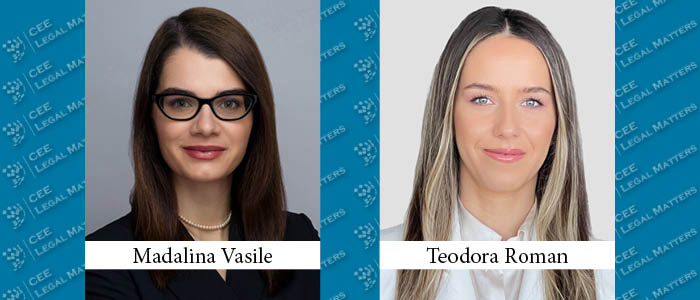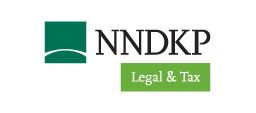On 17 May 2024, Law No. 127/2024 for the approval of Government Emergency Ordinance No. 5/2015 on Waste Electrical and Electronic Equipment (Law No. 127/2024) entered into force, after a laborious journey marked by extensive debates and negotiations, thus finalizing a legislative process that began in 2015.
Law No. 127/2024 introduces significant changes in the practice of managing waste electrical and electronic equipment (WEEE). It directly or indirectly affects all relevant actors in the industry, from producers of electrical and electronic equipment (EEE) and EEE distributors to collective organizations and operators carrying out WEEE collection and treatment activities.
Summary of some of the most important changes introduced by Law No. 127/2024:
Collection rate
Law No. 127/2024 introduces a new obligation for EEE producers to achieve a minimum collection rate for each category of EEE placed on the market (with the exception of photovoltaic panels), as follows:
- from January 1, 2025, of at least 15%;
- from January 1, 2026, of at least 20%;
- from January 1, 2027, of at least 30%;
- from January 1, 2028, of at least 40%;
- from January 1, 2029, of at least 50%.
The law does not expressly regulate, inter alia, how the minimum collection rate per category of EEE placed on the market is related to the overall collection rate (i.e., for all EEE placed on the market), the latter remaining 65% (i.e., as before). The way in which the minimum rate is calculated for each category of EEE placed on the market is also not specifically regulated. This leaves open the need to analyze how this obligation will be implemented in practice and what the consequences will be, as the changes are at this stage not fully correlated with the rest of the relevant requirements.
Extended liability of EEE producers
According to the amendments introduced by Law No. 127/2024, inter alia, EEE producers:
- retain responsibility for EEE placed on the market throughout the EEE life cycle, including the waste phase, and are obliged to ensure that minimum recovery targets are met for all separately collected WEEE, whether sent for treatment individually or through collective organizations;
- may not transfer responsibility for the same category of EEE to more than one collective organization.
Out of the changes summarized in the two points above concerning extended producer responsibility, it is particularly important that the meaning and consequences of the change summarized in the first point are clearly understood by producers. Only when all the facets of this obligation are understood can appropriate measures be taken to comply with it and to ensure protection, in particular in relation to the collective organization. The second amendment is particularly relevant for producers who have concluded contracts with several collective organizations for the same category of EEE, thus requiring changes in the contractual relations.
New requirements applicable to collective organizations
From 1 January 2025, new conditions for the authorization of collective organizations, as introduced by Law No. 127/2024, become applicable.
- Some of these conditions concern the founding members/members/shareholders and the associates of the collective organization. For example, only EEE producers who are registered in the National Register of EEE producers managed by the National Agency for Environmental Protection and who do not themselves hold authorizations for the collection and treatment of WEEE can have this quality;
- Another condition requires a minimum market share, certified by the Environmental Fund Administration (EFA), of at least 5% for a category of EEE for which authorization is sought, in the year preceding the year in which authorization is sought;
- Other conditions concern the guarantee that must be established in the amount of 2 million RON in favor of the EFA, which must be valid for the entire period of authorization and is intended to guarantee the tax obligations in case they would be due to the Environmental Fund;
- In addition, the collective organization must not be registered in the Register of economic operators not subject to environmental authorization under the general regulatory framework for the waste regime.
In addition to the conditions required for the authorization of collective organizations, Law No. 127/2024 introduces a number of obligations for collective organizations, many of which are new compared to the existing regulations prior to the amendment. These include the obligation for the collective organization to make provisions to ensure the 100% management of EEE financed by the producers for which they have taken over responsibility, regardless of when it becomes waste, or the detailed requirements introduced regarding the structure of the financial contributions charged to producers.
At first glance, the changes are mainly important for collective organizations. In reality, however, they should also be treated with at least the same level of importance by the EEE producers contracting the collective organizations. One of the challenges will certainly be how producers will be able to verify/ensure that collective organizations comply with the new obligations.
New requirements for operators carrying out WEEE collection and treatment activities
Law No. 127/2024 also brings new obligations for operators carrying out WEEE collection and treatment activities with regard to obtaining an environmental authorization.
Thus, among other things, in order to obtain the environmental authorization to carry out WEEE treatment operations, operators must be able to prove that they have contracts concluded with EEE producers or collective organizations and that they comply with the Romanian standards adopting the European standards in the field of treatment, including recovery, recycling and preparing for reuse of WEEE as per the Order of the Minister of Environment, Water and Forests No. 417/2021. Transitional rules are also provided for operators who, at the date of entry into force of Law No. 127/2024, held the environmental authorization for the treatment of WEEE.
As for economic operators that are authorized to carry out WEEE collection activities, according to the new rules, they will lose the right to carry out WEEE collection activities if by the end of the 120-day period from the date of entry into force of the new law they have not concluded contracts with EEE producers, collective organizations or economic operators carrying out WEEE treatment operations on behalf of producers.
In the light of the new requirements, as far as producers of WEEE are concerned, it is again questionable how they will be able to ensure that the obligations of operators in the WEEE management chain are respected. Mechanisms to ensure such verification at a reasonable level can certainly be envisaged.
The above are only some of the most important changes introduced by Law No. 127/2024. Many of the new requirements call for updates in subsequent legislation. Given the importance and complexity of the new requirements, a careful and thorough analysis is required in order to provide a good understanding of the updated legal requirements.
By Madalina Vasile, Head of Environment Practice, Teodora Roman, Associate, NNDKP


